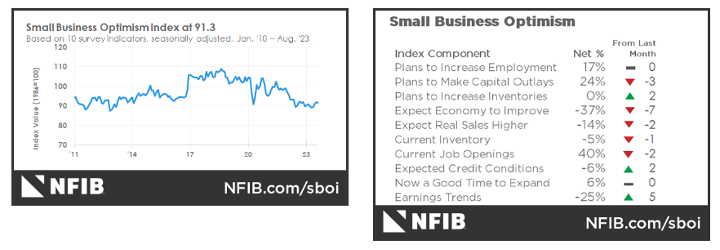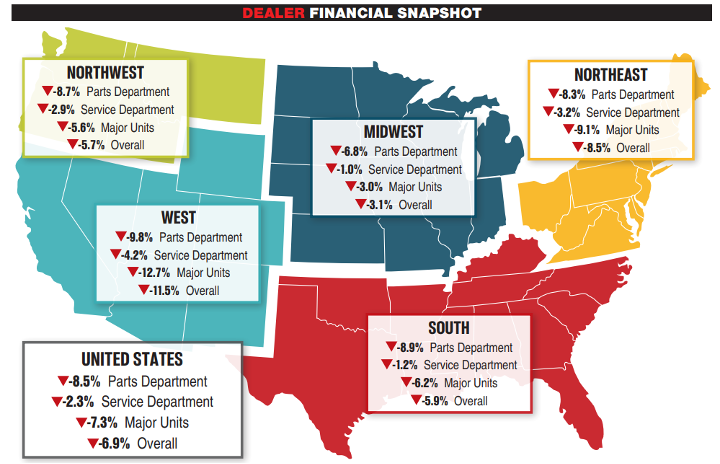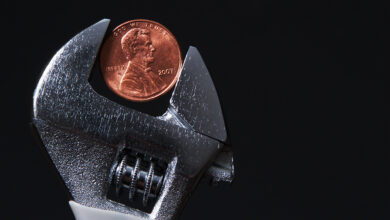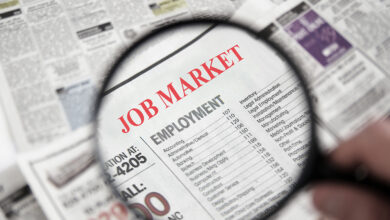KPI — September 2023: The Brief

The Conference Board Consumer Confidence Index® declined significantly to 106.1 (1985=100) in August, following a downwardly revised 114.0 in July. The Present Situation Index – based on consumers’ assessment of current business and labor market conditions – fell to 144.8 (1985=100) from 153.0. The Expectations Index – based on consumers’ short-term outlook for income, business and labor market conditions – declined to 80.2 (1985=100), reversing July’s sharp uptick to 88.0. Expectations were slightly above 80 – a level which historically indicates a recession within the next year.
Similarly, the University of Michigan Survey of Consumers – a survey consisting of approximately 50 core questions covering consumers’ assessments of their personal financial situation, buying attitudes and overall economic conditions – dipped to 69.5 in August, with September preliminary data currently registering 67.7.
“On net, consumers remain relatively tentative about the trajectory of the economy,” says Joanne Hsu, director at Survey of Consumers. “So far, few consumers mentioned the potential federal government shutdown, but if the shutdown comes to bear, consumer views on the economy will likely slide, as was the case just a few months ago when the debt ceiling neared a breach.”
According to the current NFIB Small Business Optimism Index, 23% of owners said inflation is the single most important problem in operating their business, up two points month-over-month. As a result, 27% of owners reported raising average selling prices.
Another 24% of owners point to labor quality as their top business problem. For example, 92% of those hiring, or trying to hire, reported few or no qualified applicants for the positions they are seeking to fill. The difficulty in filling open positions is particularly acute in the construction, services and manufacturing sectors.
“With small business owners’ views about future sales growth and business conditions discouraging, owners want to hire and make money now from strong consumer spending,” says Bill Dunkelberg, NFIB chief economist. “Inflation and the worker shortage continue to be the biggest obstacles for Main Street.”

Professionals in the automotive, RV and powersports industries remain steadfast in their efforts to evolve their business models and grow their brands in the face of adversity. As such, the monthly Key Performance Indicator Report serves as an objective wellness check on the overall health of our nation, from the state of manufacturing and vehicle sales to current economic conditions and consumer trends. Below are a few key data points explained in further detail throughout the report:
Current Top Takeaways:
- Economic activity in the manufacturing sector contracted for the 10th consecutive month following a 28-month period of growth, according to the nation’s supply executives in the latest Manufacturing ISM® Report On Business®. While the August Manufacturing PMI® increased slightly to 47.6%, it remains in contraction territory.
- The Consumer Price Index for All Urban Consumers (CPI-U) rose 0.6% in August on a seasonally adjusted basis after increasing 0.2% in July, notes the U.S. Bureau of Labor Statistics. Over the last 12 months, the all-items index increased 3.7% before seasonal adjustment.
- The NFIB Small Business Optimism Index decreased to 91.3, as small business owners continued to report inflation as their biggest operational challenge. It marks the 20th consecutive month below the 49-year average of 98.
- Total new vehicle sales for August 2023, including retail and non-retail transactions, are projected to reach 1,354,600 units – a 15.4% year-over-year increase, according to a joint forecast from J.D. Power and GlobalData.
- Powersports Business says dealers across the country reported an overall revenue decline of 6.9% in July, according to composite data from more than 1,700 dealerships in the U.S. that utilize CDK Lightspeed DMS. On average, dealerships were down 8.5% and 2.3% in the parts and service departments, respectively, while overall major unit sales were down 7.3%.

KPI – September 2023: State of Business
Key Performance Indicators Report — September 2023



